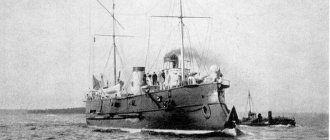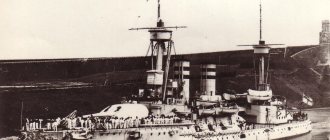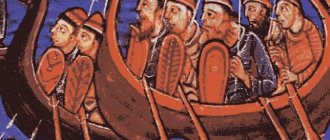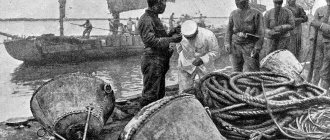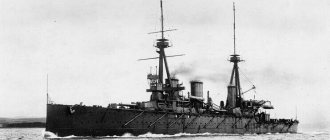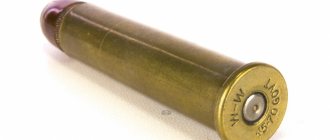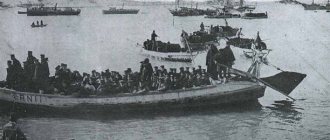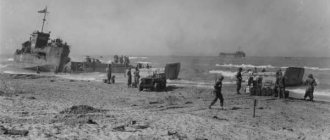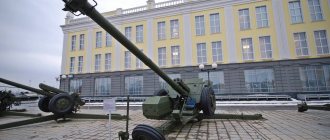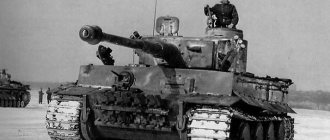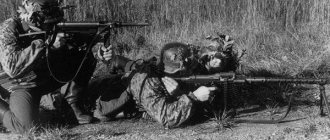"In the skies above the island"
In the spring of 1940, the German Wehrmacht swept through the Low Countries and France with unexpected speed and efficiency. Britain did not expect France to fall so quickly, so British troops barely had time to evacuate across the strait. By the end of June 1940, it seemed that Britain was left alone with the Germans, and if it decided to continue the war, it would face an invasion or blockade.
But she found unexpected allies. When almost all of Europe fell under the heel of the Nazis, not only six governments in exile, but also thousands of their soldiers and airmen found refuge on English soil.
Alexey Kostenkov
A significant part of them fought under the banner of France in the spring of 1940, reasoning that with a land border there would be a greater chance of engaging the enemy. Alas, the French army, considered the best in the world, fell under the unexpectedly powerful blow of the blitzkrieg. Foreign pilots, including Czechs and Poles, were evacuated across the strait to continue the war against the Nazis on the side of the British Empire.
Air power was the backbone of British defense. If the Royal Air Force were destroyed, even the mighty navy would not be able to withstand German air superiority for long. During the evacuation from the continent, the British lost many pilots, and the outcome of the looming Battle of Britain hung in the balance.
Germans pose with a Spitfire shot down during the evacuation (photo source)
Alexey Kostenkov
During the interwar period, the size of the Royal Air Force was reduced, its funding was cut, and there were even doubts about the advisability of existing as a separate branch of the armed forces. The outbreak of war forced a sharp increase in the number of aircraft and pilots. As in the case of the Red Army, this gave rise to a lot of growing pains.
And even with all the wartime relaxations, the RAF barely managed to gain enough air power to hold back the onslaught of the Luftwaffe in 1940. The support of foreign pilots became one of the significant factors of victory.
One in five pilots who defended the skies of England at a critical moment in its history was not British. The official RAF list includes 574 names from 15 countries. Emigrants from occupied Poland, Czechoslovakia, Belgium, France, American and Irish volunteers, pilots from the nine dominions and other possessions of the British Empire.
American pilots run to their planes during the Battle of Britain (photo source)
Looks like a perfect coincidence, right? Many experienced military pilots, cut off from their homeland, but eager to fight. And a country desperately in need of pilots. The British and foreign governments thought so too. However, it is one thing to have a crowd of pilots, and quite another to create a combat-ready team from them. A common enemy and the ability to fly an airplane are not enough for this.
Miracle at Dunkirk
On May 10, 1940, according to the Gelb plan, Germany invaded Holland, Belgium, and France. Then the game in politics ended. Churchill began to assess the enemy's strength soberly. He issued a decision to evacuate British units near Dunkirk, along with the remnants of the French and Belgian troops. Military experts did not believe that Operation Dynamo would be successful.
It cost the nearby Germans nothing to defeat the demoralized allies. But a miracle happened, and about 350,000 soldiers managed to reach the opposite shore. Suddenly Hitler decided to stop the troops, and Guderian called this decision a political one. There is a version that there was a secret agreement between the Germans and the British.
After Dunkirk, it became clear that England, having entered the Second World War, remained the only country that managed to avoid complete capitulation to the Nazis. Her situation worsened by the summer of 1940. Then fascist Italy took the side of Germany.
“They were sent for training, but they have long since earned the right to wings.”
To begin with, the British authorities had to settle a lot of political issues in order to legalize the presence of foreign military personnel on their territory. The first step was a return to the Legal Status of Foreign Forces Act of 1933. It was adopted to accommodate soldiers from other parts of the British Commonwealth, such as Canadians, without placing them under British command.
On its basis, the Law on the Legal Status of Allied Forces was adopted, which allowed governments in exile to station their troops on British territory. This was important because the Polish, Czechoslovakian and French governments did not want to make their soldiers part of the British armed forces.
But it also created a bureaucratic hell.
Alexey Kostenkov
Substantial contingents, over 80 pilots each, during the Battle of Britain were represented by (in descending order of numbers): Poles, New Zealanders, Canadians, Czechs and Slovaks. The New Zealanders are often not mentioned because more than a hundred of their pilots ended up in Britain on rotation for training. Unlike the Canadians, they did not form separate air units, but joined regular Royal Air Force squadrons.
Czechoslovakian pilot Bohumil Furst from the 310th Squadron (photo source)
It was easier for the Commonwealth soldiers. Canada's 401 Squadron arrived on June 21, 1940, a month before swarms of German bombers darkened British skies. It was created in 1937 as the 1st Fighter Squadron of the Royal Canadian Air Force. The squadron pilots learned to fly on outdated Siskin biplanes, but recently received new Hurricanes.
The Hurricane was a slower and clumsier fighter than the Bf.109 and Spitfire, but much easier to fly. The main task of the 401st Squadron was to hunt for German bombers, mainly Dornier 17s and Heinkel 111s, while Spitfires from other squadrons engaged the escort Messerschmitts in battle. Although the 401st was largely spared from political problems, it had to train and maintain aircraft according to British regulations.
Alexey Kostenkov
As in the First World War, the dominions of the empire responded to the call of the mother country. Only they were far away, overseas, and didn’t have that many people. And there are even fewer pilots. For the Battle of Britain, only the 1st Fighter Squadron of the Royal Canadian Air Force managed to arrive on the islands. She became the 401st in the KVVS.
Canadian pilots from the 1st Fighter Squadron on their Hurricane (photo source)
About the lesser evil
In addition, as a result of the Treaty of Versailles, two major players were eliminated from the political game - Germany and the young Soviets. Thanks to their isolation, the two states grew closer in the 1920s.
When the Nazi dictatorship was established, relations between them cooled. In 1936, Germany and Japan concluded the Anti-Comintern Pact, which was supposed to counter the spread of communist ideology.
The growing Soviet Union caused many concerns among Western states. And, by helping to strengthen Germany, England, together with France, hoped to contain the “communist threat” in this way.
And Hitler took advantage of this fear. In 1938, having received the consent of England and France, he returned Austria and the Sudetenland to Czechoslovakia. In 1939, he began to demand that Poland return the “Polish Corridor”. Having concluded agreements with France and England, Warsaw counted on their help.
Hitler understood that, having occupied Poland, he would clash with France and England, and perhaps with the USSR, which sought to regain the eastern Polish territories taken in 1921.
And then, in the spring of 1939, Berlin began to soften its rhetoric towards Moscow. And as a result, the Molotov-Ribbentrop Pact was concluded.
“As soon as they rose into the sky, they immediately entered into battle.”
The baptism by fire took place at the end of August, when the squadron attacked a formation of German bombers. The Canadians beat them up pretty bad, but they themselves suffered noticeable losses from the escort fighters. The pilots, nicknamed “Rams,” fought until they were completely exhausted.
Each victory was hard won and they showed a willingness to sacrifice themselves to protect British skies.
The battles, however, did not stop the hidden political intrigues. For the Royal Air Force, anyone wearing their uniform, regardless of nationality, was subject to the same regulations as British pilots. Governments in exile wanted to be seen as full allies, rather than “auxiliaries” or foreign volunteers. The independence of their pilots was not only a matter of political prestige - it gave legitimacy to the very governments representing the occupied country.
Alexey Kostenkov
A particularly serious personal and political conflict erupted over aviation within the Czechoslovakian government in exile. President Beneš and Minister of Defense Ingr disliked Karel Janousek, the inspector general of Czechoslovak air units in the Royal Air Force, much more than even General Svoboda, who had gone to the communists. And Pan Janousek, in retaliation, achieved the full inclusion of his charges into the British aviation - leaving the official commander of the Czechoslovak Air Force Vicherek with a sad and idiotic look: without a single plane and pilot. Almost a “Schveik” story.
On the same topic
Diplomatic defeat: how Hitler got Czechoslovakia
If anyone suffered from all this mouse fuss the most, it was the Czechs and Slovaks. After the Munich Agreement and the subsequent German invasion of Czechoslovakia in March 1939, they were forced to leave their homeland and seek refuge with their neighbors. They eventually reached France, but did not find a warm welcome there. The French forced many Czechs and Slovaks to join the Foreign Legion in Africa and expelled the rest from the country. Only a few were lucky enough to receive obsolete aircraft and take part in the defense of France.
As a result, more than four thousand Czechs and Slovaks ended up in Britain. Here, thanks to the efforts of President Edward Benes and Foreign Minister Jan Masaryk, in mid-July 1940 they received their own fighter and bomber squadrons, part of the Royal Air Force Volunteer Reserve.
Pilots of 301 Squadron RAF (photo source)
Alexey Kostenkov
Initially, some Czechoslovak pilots tried to join the Polish Air Force - but the reception there was even colder than in France. The fact is that since the restoration of independence, the two Slavic countries have been in conflict over disputed territories on the borders.
Well, Britain, for all its arrogance towards the Eastern Europeans, in the summer of 1940 was suffocating from a lack of pilots. Any. I had to forget about arrogance in the name of saving the country and the crown - although there were enough difficulties in the “grinding in” process.
But even in this case, some Czechoslovaks felt that they were not appreciated. Many British officers considered them to be second-rate troops, incapable of anything. Training and reorganization continued until mid-August, when the battle for the skies of southern England flared up with renewed vigor.
Then the 310th squadron was given a chance to prove itself - and it took advantage of it. The Czechs and Slovaks began a personal war with the Germans, often getting so carried away that they pursued them even across the strait. For this, they quickly gained a reputation as desperate daredevils, but also respect, as they achieved results.
Alexey Kostenkov
Unlike the Poles, who did not recognize the pro-Soviet “Lublin” government, Czech squadrons after the war flew to Czechoslovakia and became part of its air force.
Soon the wings of their planes were decorated with Czechoslovak insignia, and the fuselages were decorated with a scarlet lion. The respect was well deserved. Every German plane shot down, every award received, every brave feat of Czechoslovak pilots was documented and covered in their local newspapers. This boosted morale and showed the critics they were wrong.
By the end of the Battle of Britain, however, no one doubted them. Thirty-seven enemy kills and a large number of casualties earned them a good reputation with the British command.
Alexey Kostenkov
In total, during the war years, four Czechoslovak squadrons were created in the Royal Air Force: from 310 to 313 - three fighter and one bomber.
Polish refugees, like Czechoslovak ones, had to face official suspicion and discrimination. General Joseph Zajac personally addressed Winston Churchill and said that the Polish pilots were eager to take revenge on the Germans, and the ground personnel were already familiar with British-made aircraft engines. But the Air Force command considered the Poles too undisciplined and uncollected.
Alexey Kostenkov
During the war years, the British and Poles became filled with respect for each other - but continued to be amazed at the peculiarities of the national mentality. To the prim English, the Poles looked wild, despising any and all rules and decency - and reasonable caution to boot. They used any excuse to get into a fight with the hated Germans, even if the advantage was not on their side. Well, the Poles were amazed at the British equanimity, composure and irony in all situations. However, the Polish pilots were crazy about British girls - and quite mutually.
Most of the Polish pilots who ended up in Britain were veterans of the 111th and 112th squadrons of the Polish Air Force, many of them fought in September 1939. For them, the British 303 Squadron was less a new unit than a symbolic revival of an old one. However, in any case, they had to get used to the latest technologies - such as afterburning engines, controllable pitch propellers and retractable landing gear. The PZL P.11 fighters they flew at home were closer to the airplanes of the First World War than to the Messerschmitts they had to fight, but the Poles learned quickly.
Alexey Kostenkov
The 303rd squadron appeared fourth: after the 300th and 301st bomber squadrons and the 302nd fighter squadron. She just turned out to be the most effective and famous.
When the 303rd suddenly managed to shoot down a German Messerschmitt 110 during a training mission, the British realized that the squadron was ready for battle. In September and October 1940, the squadron clashed with the Luftwaffe more than once, and almost every mission ended in battle.
Pilots of the 303rd Squadron (photo source)
The Germans had to pay dearly for every Polish plane they once shot down. When repelling a raid on the London docks, the 303rd alone shot down 12 Dornier bombers in a day.
Alexey Kostenkov
No. 303 Tadeusz Kosciuszko Squadron was the most successful of all 66 Allied fighter squadrons that fought in the Battle of Britain. This even caused a scandal: British censors considered the publication of this information harmful to the morale of the people of the United Kingdom and the British Empire.
In total, during the war, 15 Polish squadrons were created in Britain: fighter, bomber, reconnaissance and aircraft controllers. By the end of World War II, the number of Poles serving in air units on the British side almost reached 20 thousand people. Not all of them served in the Polish Air Force in exile - quite a few Polish pilots chose to join regular Royal Air Force squadrons.
The Czech Josef František, nicknamed the Lone Wolf, who flew with the 303rd, became the most successful Allied pilot in the Battle of Britain with 17 confirmed victories. The squadron attacked the Germans fiercely over London, making it one of the most successful of 1940.
Josef Frantisek (photo source)
Alexey Kostenkov
“Lone wolf” in the case of Josef Frantisek is a clear understatement. His skill and courage were matched only by his quarrelsomeness and contempt for orders. He refused to recognize the dismemberment of Czechoslovakia, joined the Polish Air Force and fought for the Second Republic from September 39th. He was shot down and made his way to France through Romania and North Africa.
There he refused to join the Czech troops in exile, who required discipline and many commanders had a grudge against him due to his previous service. As a result, the Wolf joined the Poles - who to a greater extent recognized liberties and valued daredevils. In the Battle of Britain, he shot down 17 German aircraft, flying an outdated and not very maneuverable Hurricane. I would have shot it down again, but for reasons still unclear, it crashed.
About political games
Despite the fact that the history of the war, told to English schoolchildren, notes that it was the Molotov-Ribbentrop Pact in 1939 that gave the green light to the Nazi troops, it cannot be ignored that the Munich Agreement, which England signed a year earlier as part of other countries with Germany, divided Czechoslovakia. And, according to numerous studies, this was a prelude to future large-scale military operations.
In September 1938, an agreement was signed between England and Germany on mutual non-aggression. This was the culmination of British appeasement policies. Hitler easily convinced the prime minister in Foggy Albion that the agreements in Munich would guarantee security in European states.
According to experts, England hoped to the last for diplomacy, through which it wanted to rebuild the Versailles system. However, back in 1938, many experts emphasized that the presence of concessions to Germany would only push it to aggressive actions.
When Chamberlain returned to London, he said that he had “brought peace to our generation.” To this one day Winston Churchill Fr. These words turned out to be prophetic.
“You are the chosen ones, sent to heaven to perish there.”
At the end of October, the threat of invasion receded, the British Air Force gained air superiority and, according to many British officers, this could not have been achieved without foreign pilots. In fact, foreigners made up a fifth of the Royal Air Force. In addition to the Poles, Czechs, Slovaks and Canadians, the French, New Zealanders, Norwegians and volunteers from the USA fought in their ranks.
But although the Battle of Britain was won, the war continued, so exiled pilots continued to serve in the Royal Air Force until its end. During the war years, the British invested a lot of effort and money in cultural and educational programs for foreigners.
(Photo source)
On the same topic
An ancient family and the Royal BBC: how a Russian prince saved England from stratospheric bombers
They not only fought a common enemy, flew on British planes and ate British food, but also lived in British society, so they tried to integrate them into it as much as possible. The first and most important step was to study English - having learned to understand not only military commands, foreign pilots were no longer limited to a narrow circle of fellow countrymen. These programs worked well in overcoming prejudice and maintained morale, ensuring a comfortable stay for foreigners in Britain.
Victory in the war was possible only through joint work, putting aside political and cultural contradictions.
Over time, the parties learned to respect each other through sacrifices for the common cause. Each lost friends and continued to go into battle until victory.
Today, many veterans' organizations cite the Battle of Britain as a turning point for the Allies. British monuments tell the story of this feat and the contribution pilots from all countries made to the victory. Truly, “never before have so many been indebted to so few.”
(Photo source)
About colonial interests
Since one of England's important tasks even before World War II was to protect Egypt with the Suez Canal, Britain paid a lot of attention to the Mediterranean theater of operations. But there the British fought in the deserts. And it was a shameful defeat that occurred in June 1942. The British had twice the strength and technology of Erwin Rommel's Afrika Korps, but lost. And only in October 1942 the British turned the tide of the battles at El Alamein, again having a significant advantage (for example, in aviation it was 1200:120).
In May 1943, the British and Americans achieved the surrender of 250,000 Italo-Germans in Tunisia, and the way was opened for Allied forces in Italy. In North Africa, England lost 220,000 soldiers and officers in World War II. A second chance for rehabilitation after a shameful flight from the continent four years ago was the opening of the Second Front on June 6, 1944 for England.
Then the Allies were completely superior to the Germans. However, in December 1944, near the Ardennes, a German armored group managed to push through the line of American troops. Then the Americans lost 19,000 soldiers, and the British - about 200. This ratio of losses caused disagreements among the allies. Only the intervention of Dwight Eisenhower in the conflict allowed it to be resolved.
Great concern for England in World War II was caused by the fact that the USSR liberated most of the Balkans at the end of 1944. Churchill did not want to lose control of the Mediterranean and shared his sphere of influence with Stalin.
The tacit agreement of the Soviet Union and the United States led to Britain's suppression of communist resistance in Greece, and in January 1945 it began to control Attica. And then the Soviet threat to Britain became great.
